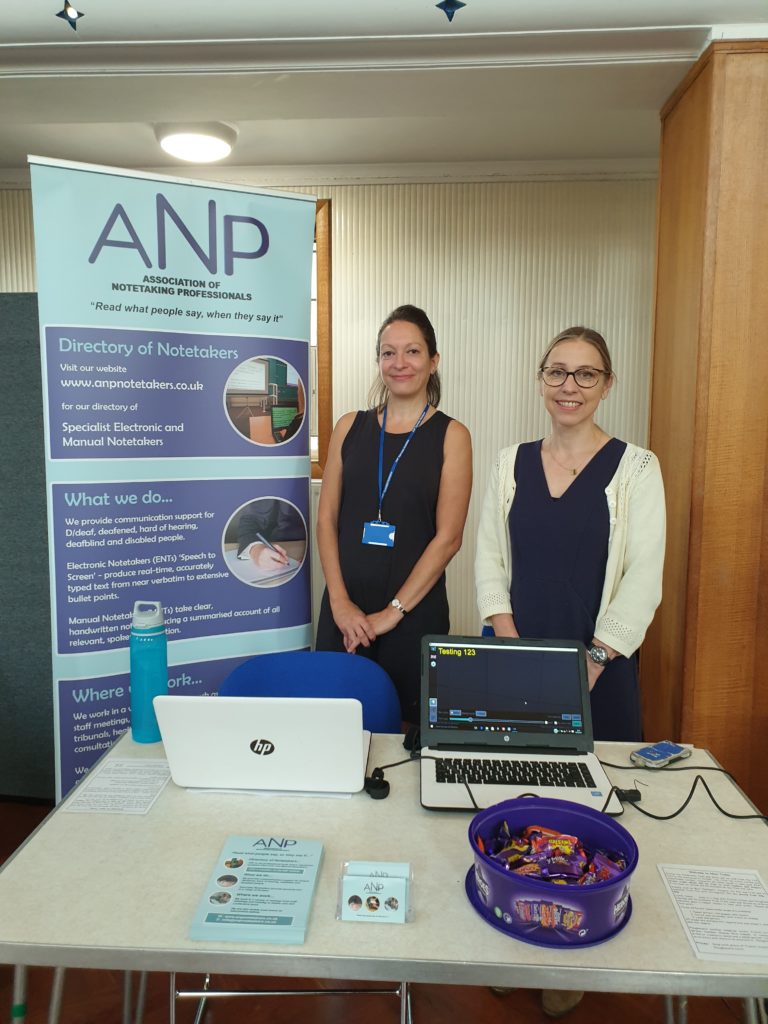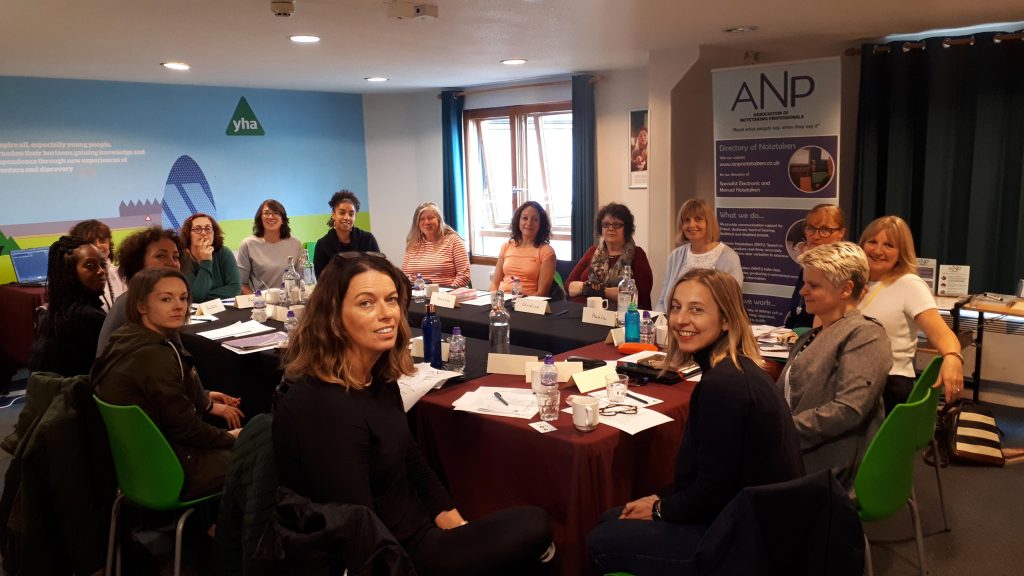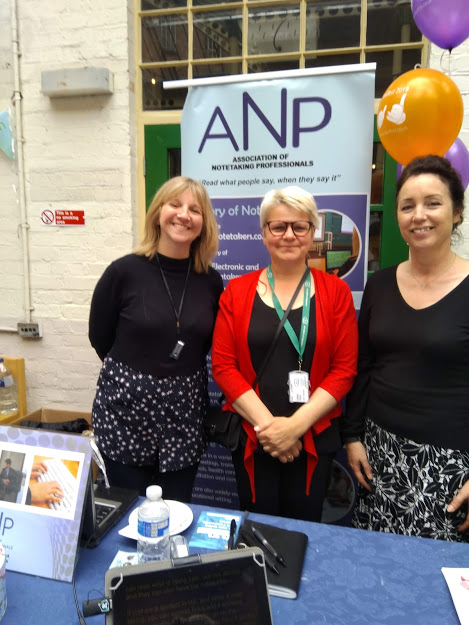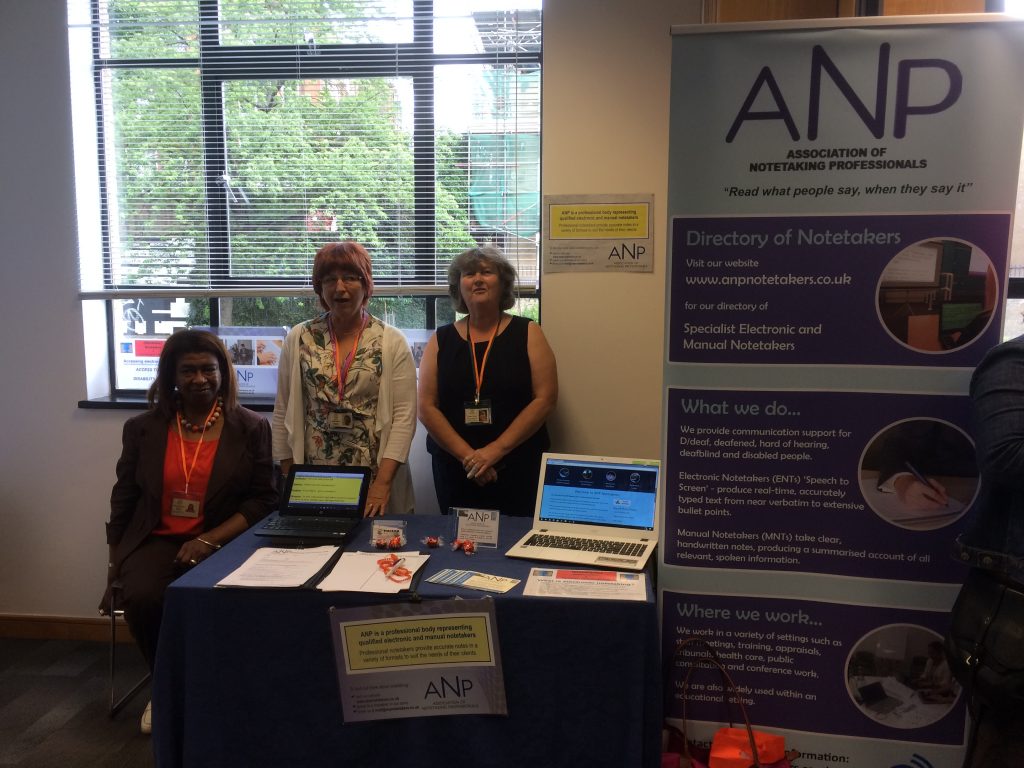Please click HERE to download A Guide to Arts, Cultural and Performance Captioning in Scotland by member Louisa McDaid.
Author Archives: Nath
ANP Response to Call for Evidence: ‘Improving non-medical help for Disabled students in higher education
In April the Department for Education published an online Call for Evidence survey called ‘Improving non-medical help for Disabled students in higher education.’
‘Non-medical help’ means human support for Disabled students which enables access. It includes Notetakers (Manual and Electronic), as well as British Sign Language Interpreters, Personal Assistants, Sighted Guides, Academic Mental Health Mentors, Study Skills Tutors (Specific Learning Difficulties) and many other roles.
The survey includes many misleading statements about the way Non-Medical Help is delivered. It proposes to abolish Disabled Students Allowance (DSA) funding for all Non-Medical Helpers. It implies that this would empower universities to employ support workers directly.
In fact, the two things are not connected. Since a large number of Non-Medical Helpers were removed from DSA funding in 2016, universities have continued the use of large, non-specialist agencies that treat workers poorly. In fact, the use of such agencies has increased, and pay and conditions for Notetakers have diminished. There has also been an increase in the use of unreliable AI technology in place of human support.
Some Notetakers have left the Higher Education sector, finding it not feasible to earn a living. It is likely that removing all Notetakers from DSA funding would increase this trend.
This would be a huge loss to students, who would be less likely to access skilled, qualified Notetakers. Research has shown that the 2016 cuts increased inequalities.
This is not surprising, as there is no regulatory mechanism to ensure that universities fulfil their responsibilities under the Equality Act. This is why DSA is still needed.
What is needed to improve the sector is not more cuts but rather:
- more funding: for good quality training courses and to pay workers adequately (whether through universities or specialist agencies)
- more oversight: to ensure that providers treat workers well and students get the services they need.
It was difficult to respond to such a badly written survey. However, you can read our full response here, which we submitted to the Department for Education before the 3rd July deadline.
Also read this statement on the Call for Evidence from a coalition of other professional organisations in the sector. This includes the list of questions.
The following articles also provide some context:
Wonk HE: Now DfE Proposes to Scrap a Huge Part of Disabled Students Allowance
Disability News Service: Reforms to disabled students’ support ‘will confuse and dilute our rights’
Hear Today Event – 17th September

A lovely pic of two of our members, Natasha Charles and Laura Goldthorpe Carlisle who, together with Melanie Thompson, represented ANP at the ‘Hear Today’ Event in Orpington in Kent at the weekend (Sat 17th Sept 21). They reported lots of interest including from d/Deaf and deafblind organisations, a representative of Hearing Dogs and from local government (the Mayor no less) – as well as lots of networking with other communication support professionals and potential clients. Lots of flyers and cards were removed from the table (along with the chocolates…) and they undoubtedly promoted our profession with vim and verve!
ANP AGM 2020 – 14th November
This years AGM is happening on the 14th November between 9:45am and 12:30pm via Zoom. Please click here to download the Members Notification Pack.
COVID-19 Update: Grants for the Self-Employed
If you are self-employed and experiencing a loss of income due to COVID-19, you may be eligible for a grant through the Governments Self-Employment Income Support scheme.
More information can be found here
ANP AGM – 19th October 2019
Many thanks to those who attended the AGM in Oxford. There were some really productive conversations during both the training and AGM and as always, lovely to catch up during lunch and breaks! As one member said, ‘…it is great to have some face to face time with colleagues’. The minutes will be posted online in the ‘members area’ in due course.

Deaffest 2019 Report
The ANP held a stall at Deaffest 2019 at Wolverhampton in May. The event is always busy with predominantly sign language users but our stall received interest from a variety of attendees. We had a lovely enquiry about notetaking in FE from a mother with a deaf son. Karen and Jackie explained the types of notes that can be provided while Karen did a short demonstration. We also had enquiries from people wanting to know how to be trained as notetakers and we discussed the benefits of being a member of ANP.
The stall was really well placed at the venue and we had a steady stream of passers-by and lots of attention to where we would work and how we would best support people.
It is always interesting to realise how many people are unaware of the support that is out there and any enquiry is potential business for our members.
Congratulations to Jackie and Karen who fronted the stall.
Here are some photos to prove just how great they looked!!


Many thanks from everyone.
Deaffest – 17th – 19th May 2019
This years Deaffest is being held in Wolverhampton between the 17th – 19th May. More information can be found – https://deaffest.co.uk/2018/08/29/deaffest-2019/
16th June at the NADP Conference
A worthwhile attendance at this capsule event as delegates showed an interest in our activities and both manual and electronic notetaking was acknowledged as an essential communication method. Awareness of Notetaking was also promoted by our presence, to the speakers who have impact in their fields of work. Our stand was supported by the following members – Meriel Michaelides, Penny Clarke, Susan Baines and Sisily Alexander – many thanks to them for representing ANP at this event!

City Lit Deaf Day 2018
Deaf Day ANP Stand 2018
Notetaking was again on show at the annual Deaf Day event in London’s CityLit, with manual and electronic notetakers womaning the stand. What we do was prominently displayed on banner and walls. There was a steady flow of visitors whose queries and comments were managed by our experts and CityLit even advertised an ENT employed for one of their activities! Now that’s a first!!


